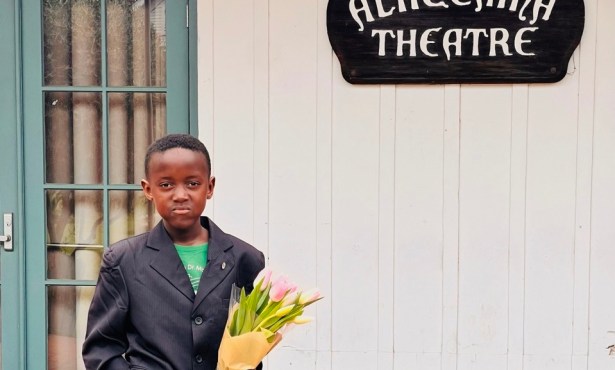Margot at the Wedding
Nicole Kidman, Jennifer Jason Leigh, and Jack Black star in a film written and directed by Noah Baumbach.

Much of Margot at the Wedding takes place in a single location-a bleak East Coast family home by the seashore. It should be a pleasant scene, here by the sea. Margot (Nicole Kidman) has come for the wedding of her slightly loony sister (Jennifer Jason Leigh). But the weather seems perpetually gray and windy, the ancient family tree is up for removal-in fact and in metaphor-and family relations keep heading south for various reasons.
In other words, it’s business as usual for filmmaker Noah Baumbach, whose startlingly fine The Squid and the Whale similarly explored the tyranny and dormant tenderness of a family situation. Whereas Squid gamely revisited Baumbach’s own familial past, here he ventures into a more fictional realm. This family is both of this world and torn from the pages of dry, dark comedy.
Beyond the narrative matters, what makes Margot such an exciting care package amid this year in American film is its distinctly non-American texture. A more stylistically adventurous film than Squid, its engaging rough edges-handheld camera, choppy editing, dim available light-give it the feel of a stateside variation on the Danish Dogme 95 manifesto.
And yet the stellar cast yanks it out of the art house cul-de-sac. Kidman, in one of those roles that reminds us what a remarkable actress she is, presents herself as the solid, rational family anchor. But we quickly learn otherwise while growing to admire the secret deposits of faith and goodness in the supposedly eccentric sister played by Leigh.
As the dubious groom-to-be, Jack Black finds himself refreshingly cast against type, yet he’s still able to slip in his comic chops and temperamental outbursts. As a would-be rock musician and professional “letter writer,” Black’s character is in arrested development with an unnatural attraction to a teenage babysitter. Talking about the prospect of being a father, he says, “I haven’t had that thing yet where I realize I’m not the most important thing in the world.” True that.
Potential melodrama is kept at bay by the vigorous artistic vision Baumbach brings to the work, with his roving, impetuous camera and implied sense that the landscape of the family is dotted with both landmines and comfort zones. And happy endings come and go, in multiple flavors.



